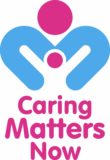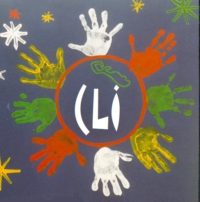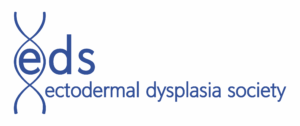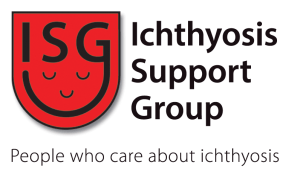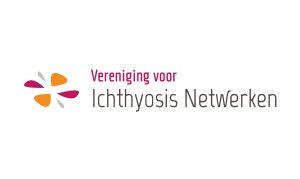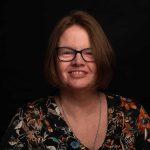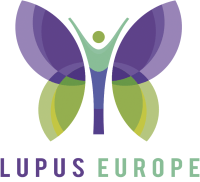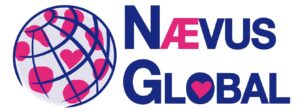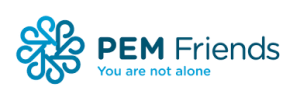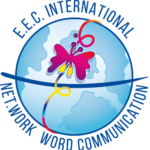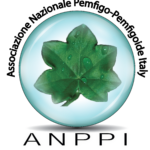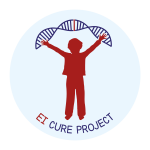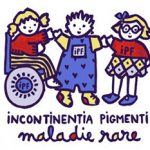The Skin ePAG
Between 6 000 and 8 000 rare diseases affect an estimated 30 million people in the European Union. An unfortunate feature of rare diseases and complex conditions is the scarcity and fragmentation of specialist knowledge, which is often not available in the patient’s region or country. Many patients therefore might not receive a satisfactory explanation for their symptoms, have delays to correct diagnosis or have access to the necessary knowledge on treatment options, rehabilitation and care.
In March 2011, a new Directive was adopted by the European Parliament and the Council of the European Union: Directive 2011/24 on the application of patients’ rights in cross-border healthcare. The Directive sets out the conditions under which a patient may travel to another EU country to receive safe and high quality medical care and have the cost reimbursed by their own health insurance scheme. It also encourages cooperation between national healthcare systems.
European Patient Advocacy Groups (ePAGs)
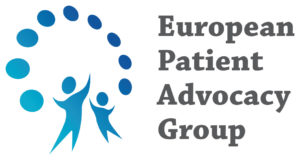
European Patient Advocacy Groups (ePAGs) bring together rare disease patient advocates who are actively involved in the work of the European Reference Networks. Each ePAG has a number of ‘ePAG advocates’, who represent their disease area in the ERN and the interests of the wider patient community. To learn more about the involvement of patient organisations and patients in the European Reference Networks, click here.
The SKIN ePAG is the ePAG advocate group of the ERN-Skin. Each member is a representative of a patient organisation. Within the ERN-Skin, ePAG advocates are present in each thematic and transversal group and play a key role in governance.
ePAG advocates’ contribution:
- They ensure that ERNs remain truly patient-centric, which is central to the achievement of the ERNs main goal: improving the quality of the care that patients receive and health outcomes.
- They hold the unique knowledge or personal experience of a specific disease, and can convey the needs and challenges of living with this disease into network discussions, decisions and activities.
- They also bring their complementary skills and experiences outside the medical field (legal, IT, training, communication, etc.) that can enrich network discussions and offer new and alternative perspectives.
- They have a stake in every stage of the healthcare and research pathways, from diagnosis, care and treatment through follow-up and from early research through to orphan drug authorisation, and as such they are in a privilege position to have a holistic view of the whole process.
Skin ePAG interview: Discover the ERN-Skin through their experience
Produced by ERN-Skin
Patient associations participating in the Skin ePAG
ePAG Advocates
Who we are: Caring Matters Now is the UK charity supporting those affected by Congenital Melanocytic Naevi (CMN)
Our Vision: We have a vision of a world where no one suffers from CMN.
Our 3 areas of work:
- supporting those affected by CMN
- funding pioneering research to find a cure for CMN
- raising national and international awareness of CMN
Contact: info@caringmattersnow.co.uk
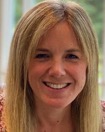
Cutis Laxa Internationale was set up on 11th November 2001, by the parents of Cécile who was diagnosed with Cutis Laxa in 1992. Its aims fits with the needs of patients and their families :
- Breaking the loneliness, induced by the rarity of this syndrome
- Working together with the medical and scientific world to improve knowledge and research
As of today we are still the only organisation worldwide. For about 20 years, CLI has allowed 422 sufferers (as of 1st June 2020) and their families to get to know each other, and to research to make huge improvement.
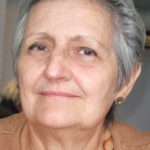
CMTC-OVM is a worldwide non-profit patient organization that aims to improve the quality of life of people suffering from vascular abnormalities (blood vessel abnormalities), such as CMTC (‘Van Lohuizen syndrome’), and stimulate scientific research into these disorders.
Contact: president@cmtc.nl

As my younger son was born with RDEB, I initiate foundation of Debra Croatia in 1996.
Our aim is to get together families with the same problem and organise team of specialists to assure holistic, integrated multidisciplinary care for patients living with EB. With services we provide, we are a link between patients and specialists/institutions to make each journey as easier as possible.
Contact: info@debra-croatia.com

DEBRA Italia is a non-profit organization founded in 1990 by families of children affected by Epidermolysis Bullosa.
DEBRA Italia is committed to improving the quality of life for people living with EB through medical and social support, promoting research, raising awareness, and supporting specialized care centers across Italy.
Contact: info@debraitalia.com
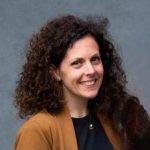
Selbsthilfegruppe Ektodermale Dysplasie e.V. is a charity covering the German-speaking countries Germany, Austria, and Switzerland.
We provide information and support and work together with professionals and researchers. We are raising awareness and facilitate networking amongst the families.
Our aim is to improve the health and daily live for people whose lives are affected with Ectodermal Dysplasia.
Contact: andrea@ektodermale.dysplasie.de
ulrike@ektodermale.dysplasie.de
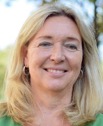
The Ectodermal Dysplasia Society, based in the UK, became a charity in 2001 to support families affected by Ectodermal Dysplasia (ED) by providing much needed information and signposting to medical professionals who have experience of this condition.
We continue working for our ED community around the UK bringing families together, increasing awareness and providing support.
Contact: info@edsociety.co.uk
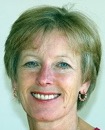
Genespoir is the French association for albinism. It was founded in 1995 and gathers members from France, Belgium, Luxembourg and Switzerland.
Genespoir aims to improve the lives of people with albinism and their families both in terms of social experience and medical care.
Since its creation, the association has been actively promoting research on albinism in order to improve the knowledge on the genetic and cellular mechanisms causing the condition and allow the development of therapies.
Among its missions, Genespoir provides accurate and up-to-date information on albinism to families, medical professionals and the general public. This covers diagnosis, sun protection, optimal vision correction and protection, social issues, schooling and employment. It provides support to people with albinism and their families, and informs them of their rights.
Contact: international@genespoir.org
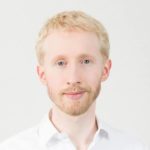
The ISG is committed to the ongoing provision of an information network and support structure for sufferers and families affected by ichthyosis. Associated with that the organisation creates greater awareness and understanding within the medical profession, and lobbies for greater research into this distressing condition.
Contact: ckick here
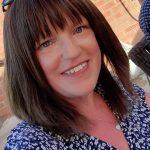
Mandy Aldwin-Easton
SKIN ePAG Advocate
Associated thematic group
LUPUS EUROPE, established in 1990 (formerly known as ELEF), is the European non-profit umbrella organisation that unites national lupus patient organisations throughout Europe.
LUPUS EUROPE’s mission is to empower and support its member organisations, fostering information exchange, and promoting better patient-centred processes, both within the healthcare field and at a political level.
LUPUS EUROPE also works tirelessly to improve access to healthcare for all lupus patients, advocating on their behalf at EU level. LUPUS EUROPE has grown to represent a majority of Europe’s key countries, collectively representing over 30,000 patients.
Contact: annemarie@lupus-europe.org
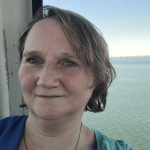
Annemarie Sluijmers
SKIN ePAG Advocate
Associated thematic group
A strong and impactful network of patient representatives working together to ensure people affected by Congenital Melanocytic Naevus enjoy an empowered life with acceptance.
Contact: benjamin.loeffler@naevus-netzwerk.de
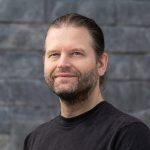
PEM Friends’ main aim is to provide information, support and advice to people diagnosed with Pemphigus or Pemphigoid. Its aim is also to expand awareness of the disease in order to speed up diagnosis and improve treatment options. This information helps patients, family and carers, live better with these diseases and manage the side effects of the drugs.
PEM Friends has a Medical Advisory Board and work with the medical community as patient representatives in several studies and programs.
Contact: info@pemfriends.org.uk
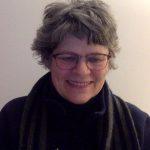
The Patients’ Association HS Denmark works for people with hidradenitis suppurativa (HS) in Denmark.
Our primary focus is to raise awareness of HS, and provide information about HS among patients, health care professionals, and in society, including politicians. Furthermore, we support HS patients, create networks, and represent Danish HS patients.
Contact: info@hidrosadenitis.dk
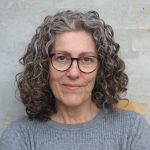
p63 Syndrome E.E.C International Onlus is an INTERNATIONAL non-profit association founded in 2009 with the aim of supporting activities in support of people suffering from rare diseases. The primary mission of the association is to raise public awareness on rare diseases, in particular EEC Syndrome and similar diseases, caused by the TP63 gene. While much has been done in the scientific field thanks to excellent international collaborations, much more needs to be done in the field of cellular research. In the social field, the association has been the protagonist of a great innovation: transforming the concept of “different” from the others into self-acceptance. p63 Syndrome E.E.C International Onlus is an association of social promotion formed by young people and volunteers and young professionals that aims, through numerous services and initiative Please note we are the only association for EEC Sydrome, as recognize from EURORDIS FOR wich we are an european Organization on eec syndrome and tp63 genetcs mutations.
Contact: segreteria-international@sindrome-eec.it


